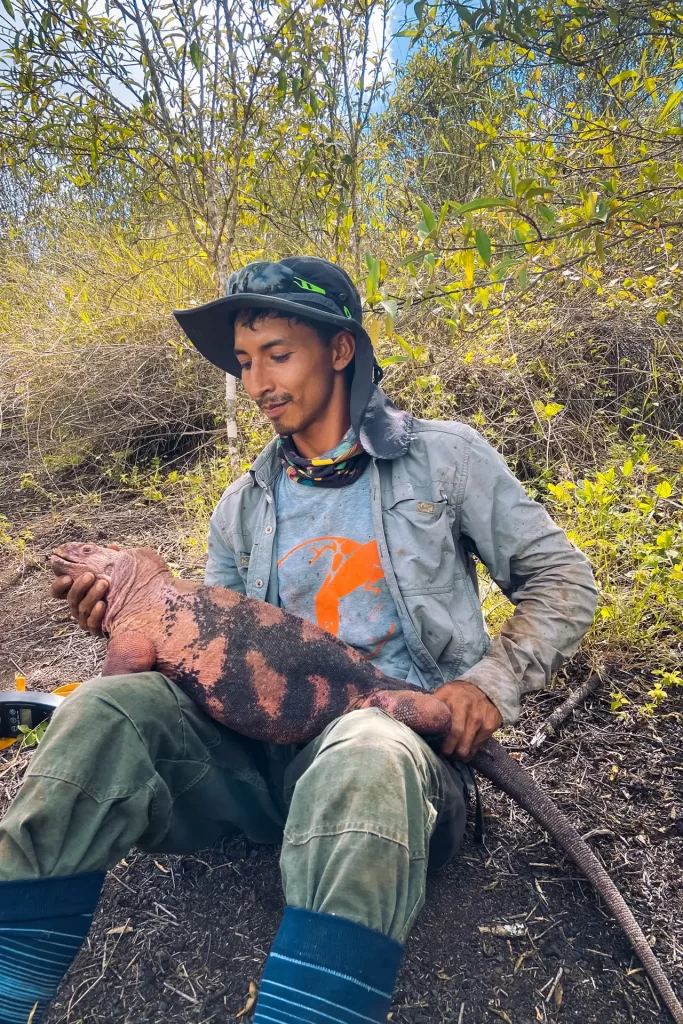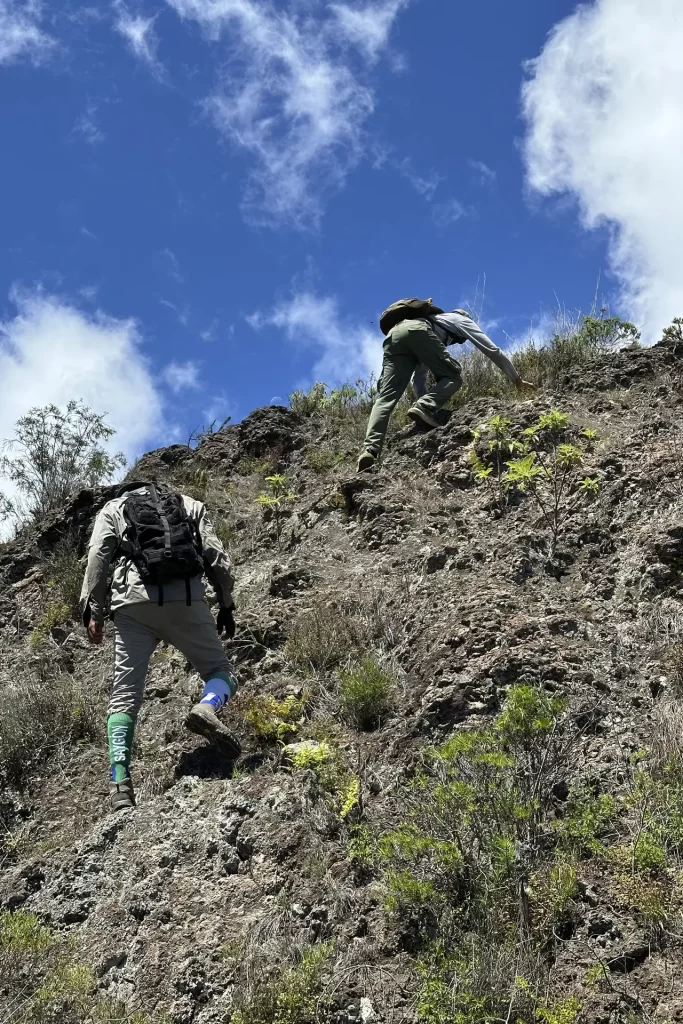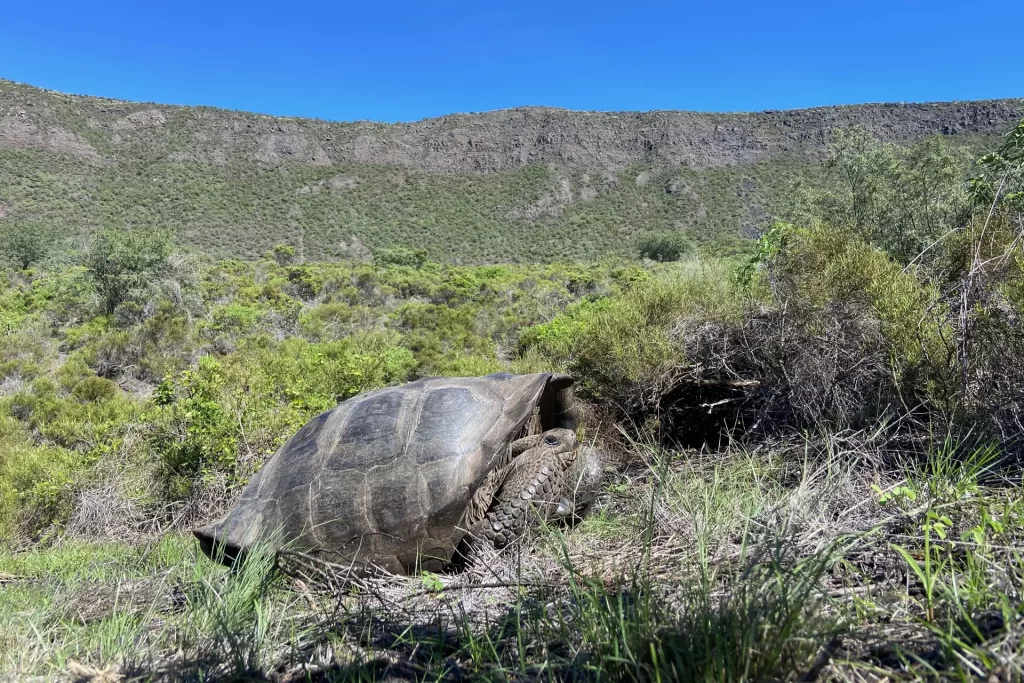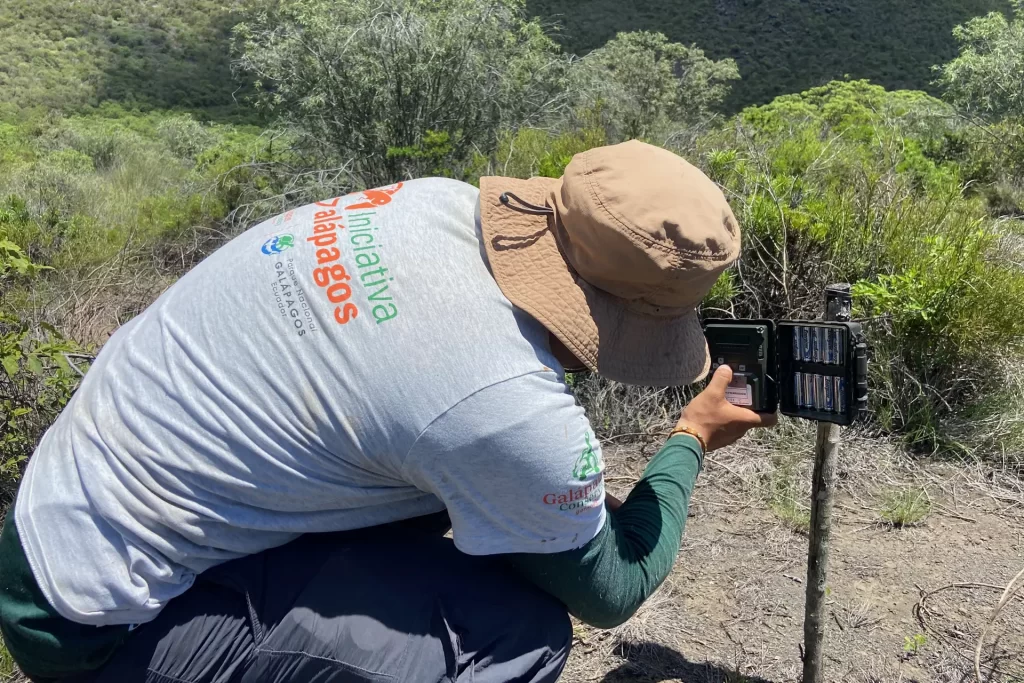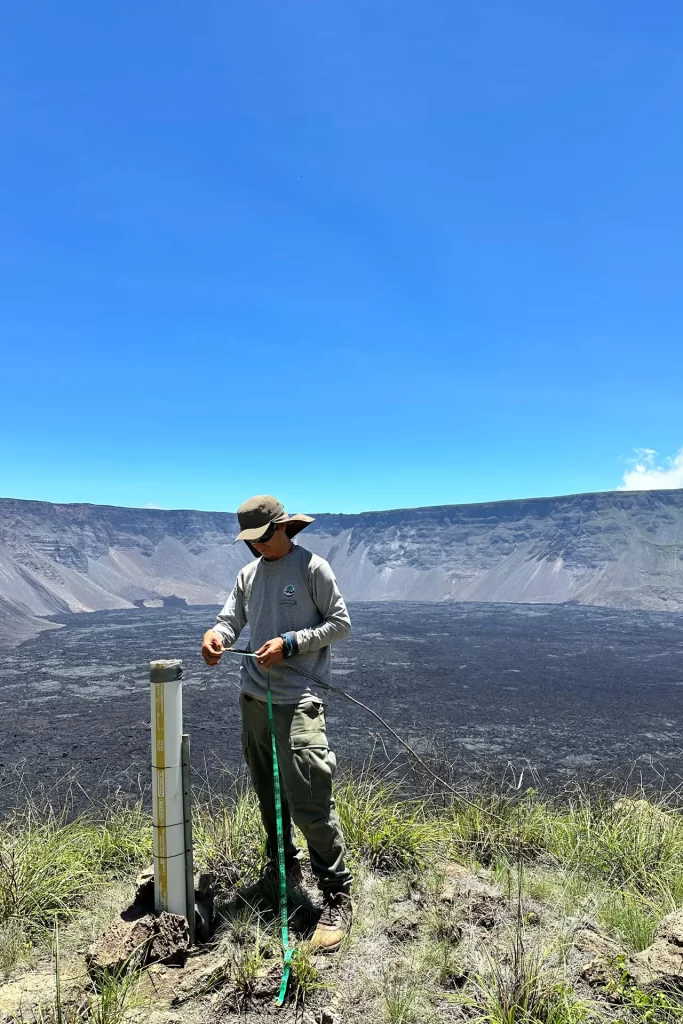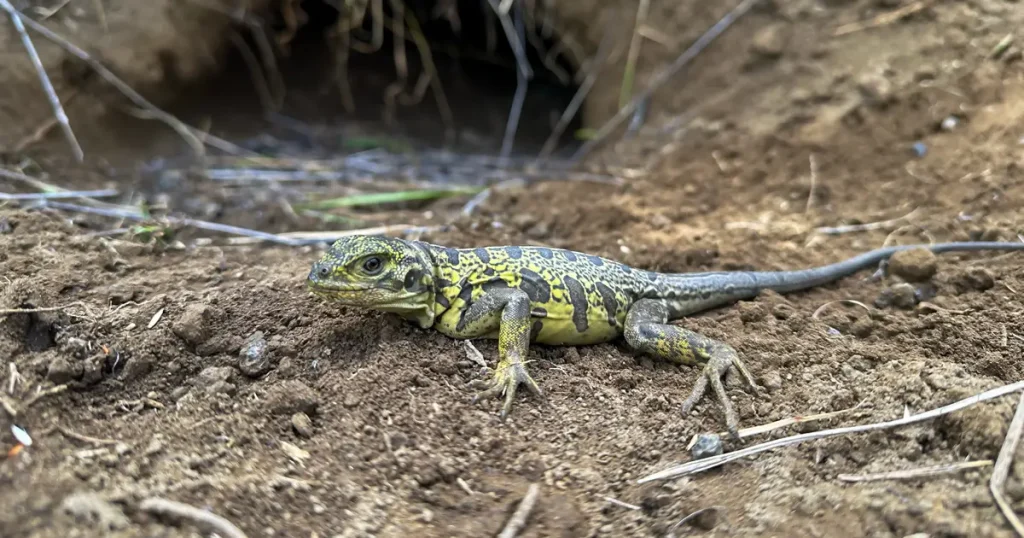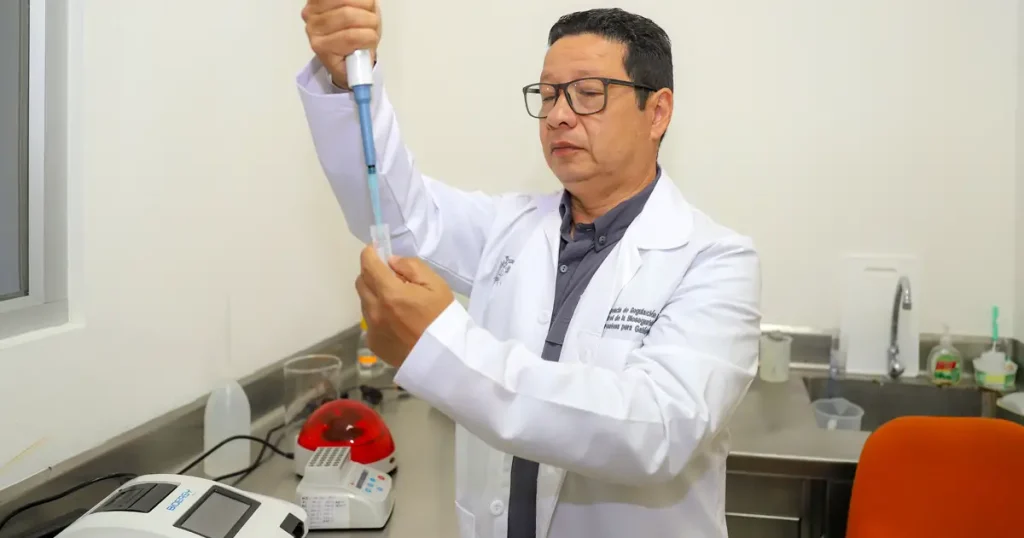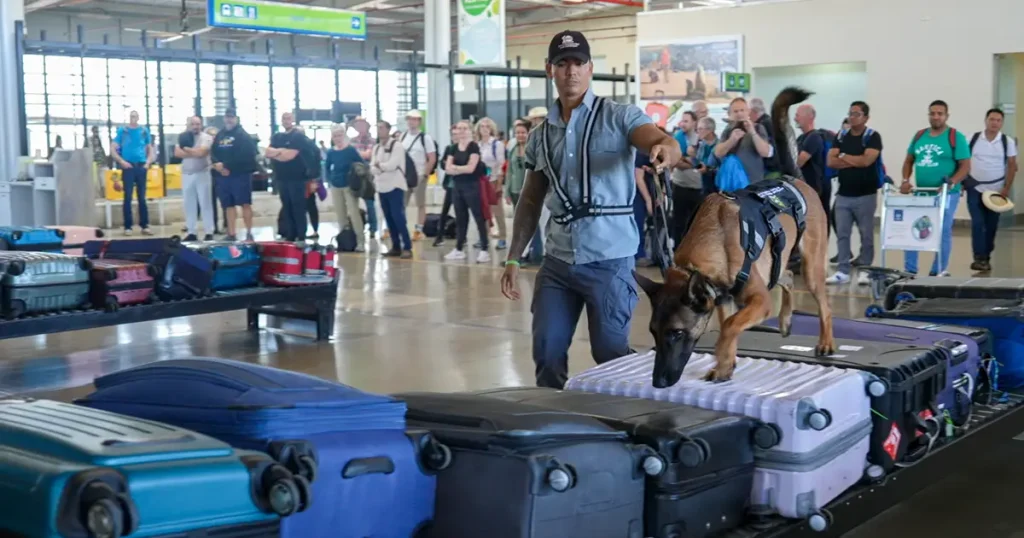A Recent Conservation Expedition Exploring Wolf Volcano
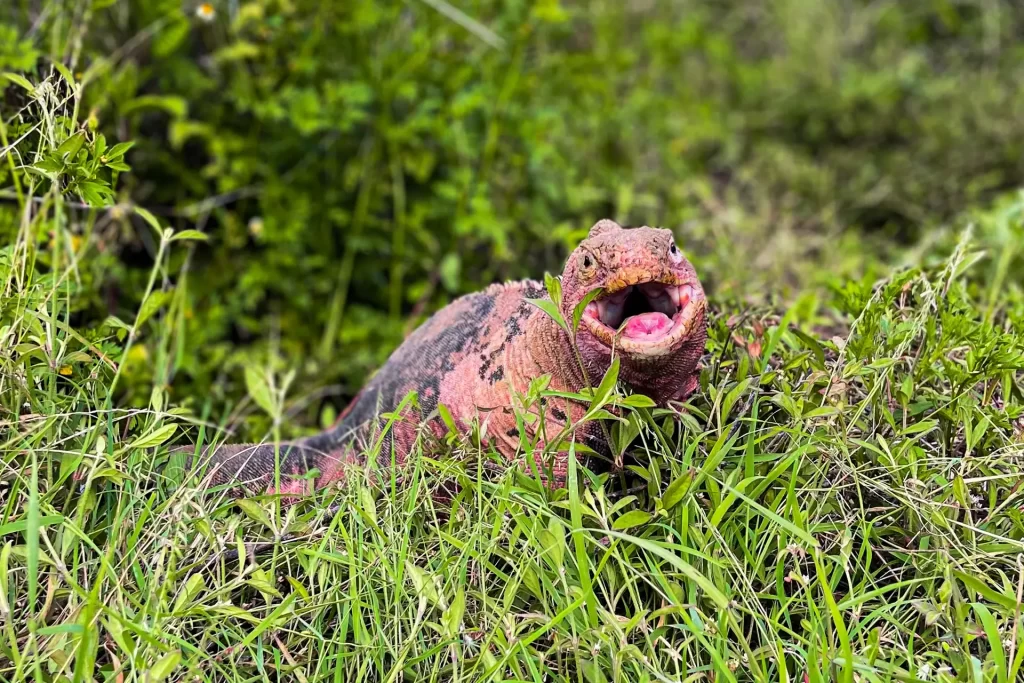
A team of six adventurers, consisting of park rangers and scientists from Galápagos Conservancy, undertook a recent expedition to the formidable Wolf Volcano on northern Isabela Island.
From February 27th to March 6th, 2024, the expedition team, led by our Director of Conservation, Dr. Jorge Carrión dedicated over 600 hours protecting the unique ecosystems of this fascinating volcano, the highest point in the archipelago at 5,600 feet (1,707 meters) above sea level.
Research on Pink Iguanas and Giant Tortoises
During the expedition, crucial monitoring of the Critically Endangered pink iguana Conolophus marthae was undertaken. The goal was to gain a better understanding of the species’ ecology, reproductive biology, and potential threats. The team’s primary focus on this expedition was on finding pink iguana hatchlings. The team was able to locate a total of 53 individuals. These included five new adult individuals that had never been recorded before and one juvenile – the remainder were iguanas found previously. The team also characterized the species’ habitat at each capture site.
In addition to monitoring the pink iguanas, the team also surveyed the giant tortoises of the Chelonoidis becki species that is endemic to the volcano. These tortoises are classified as Vulnerable due to a significant population decline in the 1800s. Now the population is estimated to have recovered to between 10,000 and 12,000 individuals. By studying tortoise distribution along the altitude gradient of the volcano as well as tortoise movement , the team hopes to gain a better understanding of this species habitat needs as well as its role engineering the volcanoes ecosystems.
Technology for Conservation
As part of a comprehensive strategy, the expedition team installed a network of camera traps throughout the pink iguanas’ habitat. Many previously deployed cameras were relocated and images downloaded to provide a trove of data for monitoring activity of all wildlife on the volcano, including in some previously unmonitored areas.
To better understand the environment in which the pink iguanas live, our team deployed 25 temperature sensors in various strategic locations along the volcano’s flank to document temperature variation. Precipitation is also being measured with rain gauges installed at different altitudes, including inside the crater. These measures will help us understand the climate niche the pink iguana lives within on the volcano it calls home.
Reflections on the Expedition
Dr. Carrión emphasized that the recent expedition to Wolf Volcano is proof of our strong commitment to conservation: “We are unwavering in our dedication to safeguarding these extraordinary ecosystems for future generations.”
Through our Galápagos Initiative program, executed jointly with the Galápagos National Park Directorate, we work tirelessly to protect the archipelago’s remarkable species and the ecosystems they inhabit. During this expedition to Wolf Volcano, our team sought to generate the most scientific knowledge possible to guide ongoing conservation efforts there. Their dedicated efforts reaffirm our commitment to conservation and our mission to protect and safeguard the entire Galápagos ecosystem for future generations.
